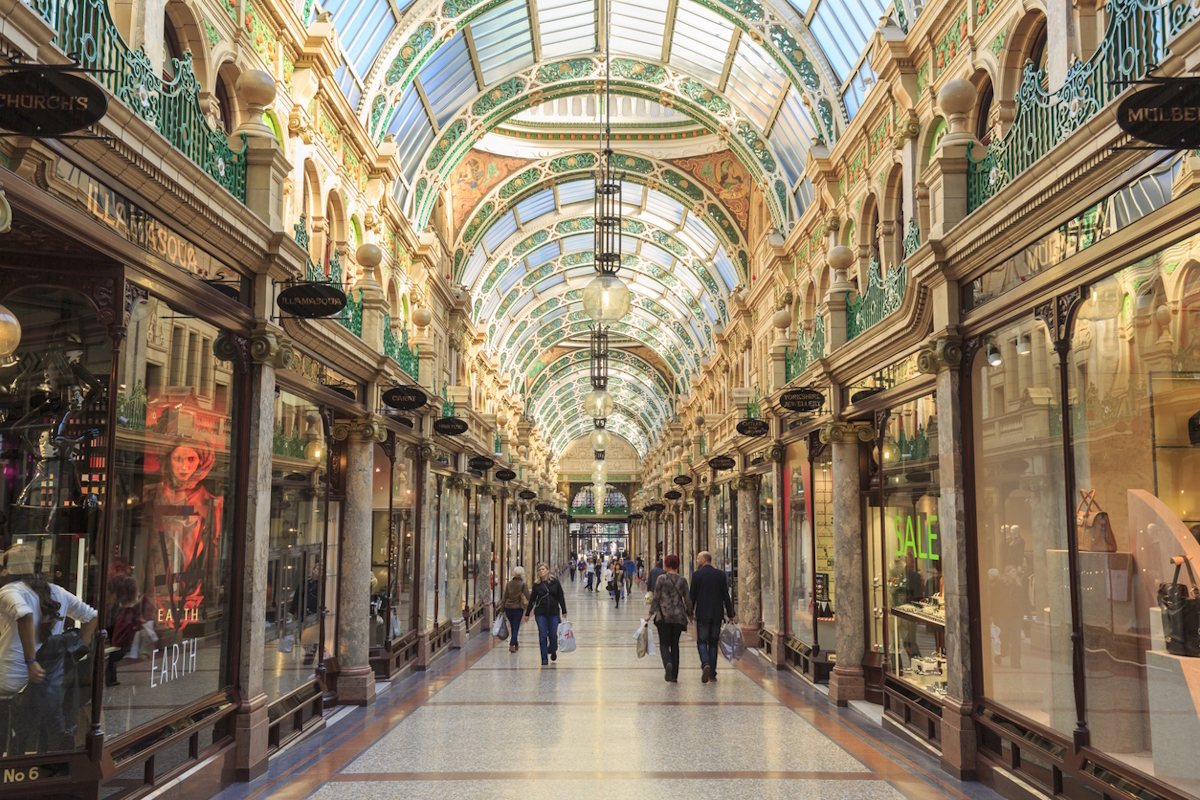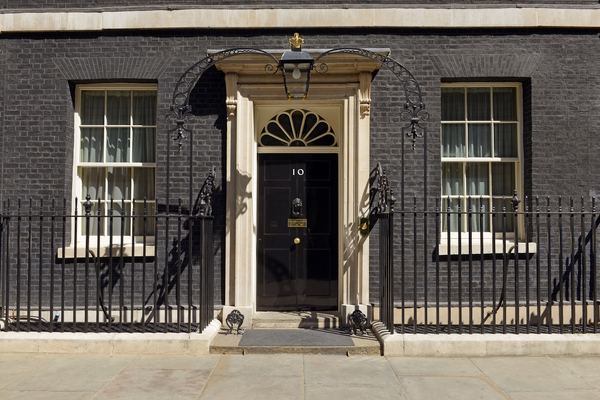Move over Barcelona: it's time for Leeds to shine...

Say the words ‘high street’ and the words struggle or changing aren’t far behind. But the Chief Executive of Leeds Business Improvement District (BID), Andrew Cooper, says it’s time to challenge the ‘negative narrative.’ This September, he’ll be launching the BID’s five-year business plan. And it’s visionary.
It asks the question: as a river city, can Leeds be more like Barcelona? Andrew explains, “Being ambitious and innovative, you think how can we better use the river? An innovative solar-powered boat? A city sightseeing tour on the river? A Park and Glide so visitors park at the Royal Armouries and get a river shuttle to the city centre? These are areas the BID can potentially put forward some catalytic money, and others will come forward and say yes, we want to be part of that.”
2024 marks 20 years of Business Improvement Districts (BIDs) in the UK. “The model of BIDs started in North America before coming to the UK in 2004,” Andrew says. “It’s an international concept and when done well has transformative results.” New York, Andrew says, has 75 BIDs. “If you haven’t got a BID in New York, you’re not competitive.”
LeedsBID is the largest multi-sector BID outside of London. It has been so successful that the International Downtown Association invited them to speak in Chicago on their experience with place marketing. No other organisation in Leeds, without political or commercial motivation, hovers over the city with the clear objective of bringing people together for improvement. Its current annual budget is £2.5m and it generates additional income through sponsorship and in kind. 95% of BID’s spend is re-invested back into Leeds and the projects LeedsBID undertakes.
BIDs are created by the businesses they represent, who pay them a levy and vote for them. They have a five-year term, and this September LeedsBID launches its 2025-30 business plan on the run-up to its October ballot. It operates on three main pillars: creating a warm welcome and improving cleanliness and safety; inspirational events and animations in the city; and being ambitious for the future.
Andrew is rooted in the high street. Born and raised in Nottingham, he started his working life as a teenager in Boots, becoming an apprentice in logistics and distribution at its head office. In his final three years at the company, he worked in corporate affairs. “That’s when I got exposed to corporate social responsibility and the importance of high streets to their business and the impact of town centre partnerships.”
In 2003, when BID regulations were drawn up under the Blair government, Andrew leapt the fence into town centre management in Stratford-upon-Avon before managing Bath’s BID through two ballots. “A World Heritage site, Bath is a wonderful city to work in and an extremely positive and uplifting place. But I wanted a new challenge, and Leeds hadn’t had a BID, which I was surprised about as a large northern city,” he says.
There was a bias towards BIDs in the south, which is where the first pilot began. In 2010, there were just two BIDs in Yorkshire. Now there are 17. Leeds was the 200th BID in the UK when it was established in 2015. Pre-BIDs, town centre partnerships relied on voluntary contributions of local businesses to provide non-statutory essentials like Christmas lights, hanging baskets, and public events.
BIDs, Andrew says, are more democratic: “People said, hold on a minute, not everyone in the old world of partnerships is paying, but everyone is benefiting from the contributions of those who have CSR policies like Boots and Sainsbury’s. When a BID comes in, you draw a line around an area and ask all businesses in it to vote on a business plan. Everyone pays and everyone plays. It’s a lot fairer and more inclusive.”
Simply put, BIDs deliver the ‘additionalities’ in a town or city centre. Andrew explains: “Taxes go to local authorities to pay for statutory services. The BID is not a tax; it’s a levy. The law is clear: a BID can’t fulfil statutory obligations. A BID is established to do the additional things that businesses want to see happen in a place.”
Today, with UK local authorities in £122bn debt, BIDs are increasingly vital. “The statutory cake has shrunk considerably,” Andrew says. “The BID used to be the cherry on the top, but now more and more issues are coming to the BID to solve because we’re well-placed to connect all organisations in our cities and towns to work collectively. It’s how we make our levy work well and give a return back to the businesses who pay for it.”
Andrew takes pride in the energy and professionalism of LeedsBID, which acts as a catalyst. “We’ve done a lot of public art projects in places that look a bit unloved that nobody really takes ownership for. That hasn’t cost a lot of money, but it’s cost a lot of effort to get property owners and landowners together to make something happen. A BID is often well placed to do that because its only objective is its middle initial - to see Improvement. No other organisation is established or set up to do that corralling.”
He cites Athena’s Rising, the UK’s tallest mural, as a now iconic tourist attraction as one of their successes. But it’s also about the less glamorous projects, such as a walkway between the train station and Trinity car park. “We jet washed it, put some pea lights up, got Network Rail and the car park to work together, then commissioned a local artist to do a mural on the arches. That area’s been transformed and looks a lot lighter and safer, and it didn’t cost a lot of money. It’s that impetus. The BID goes in first and says let’s make this happen from small projects to big projects. It’s just bringing people together to work for the collective good. We just want to see improvement and put Leeds on the map, it’s as simple as that.”
Huge successes include free animation events such as the Leeds Jurassic Trail, which ran from 2019 to 2022 with a footfall of 988,000 and £6.35m gross value added. Its Christmas projection at the Queens Hotel in 2023 attracted 200,000 strong audiences. Free events to date have generated a footfall of 1,323,990 with an estimated gross value added of £7.91m.
In a time of arts cuts, it also delivers the renowned Leeds International Festival of Ideas, this year attracting names such as Professor Tim Spector, Kate Garraway, and Nile Rogers, talking about everything from the failures of the social care system to the evolution of creativity.
The next big free animation is a giant MONOPOLY Leeds Takeover of the city from 27 July till 1 September. It’s expected to attract half a million visitors and celebrates the city’s remarkable heritage to the game, which was produced by Leeds firm Waddingtons. The city takeover took two years in the making with talks in LA with Hasbro.
Andrew says, “All the city is involved and that’s come about because we’ve had the right people sat on the LeedsBID Board, who are all unpaid volunteers representing their sectors of the business community – hospitality, retail, the legal sector. A successful BID has clear business objectives, a boundary that’s realistic, and a Board that can help deliver it. You get an interesting dynamic. Realising sometimes certain sectors don’t cross-pollinate, but once on a BID Board, they work together and that’s when the magic happens.”
Despite the challenges of online shopping and the pandemic, Andrew feels developers acted fast to keep the city centre vibrant, and ultimately people have an affiliation to it. “We saw the ramifications of thinking we could go online or do everything from home after Covid with the sea of mental health issues. People need people at the end of the day and high streets and city centres play an important community role.”
Part of the BID’s five-year business plan is to expand south of the city to incorporate the huge developments around the river, including the Royal Armouries and the new Aire Park, a landmark for Leeds and the largest new city centre green space in the UK. “The city is growing, so the BID needs to grow too.”
Andrew says, “It’s a city of ideas, vibrancy, and innovation, with its strong student population, world-renowned teaching hospitals, and the development of an Innovation Arc. The BID is part of that success story in getting the city to work together.”
For Leeds, its high streets look bright. Welcome to Leeds – move over, Barcelona.
Main image courtesy of iStockPhoto and kelvinjay

Business Reporter Team
Most Viewed
23-29 Hendon Lane, London, N3 1RT
23-29 Hendon Lane, London, N3 1RT
020 8349 4363
© 2024, Lyonsdown Limited. Business Reporter® is a registered trademark of Lyonsdown Ltd. VAT registration number: 830519543





